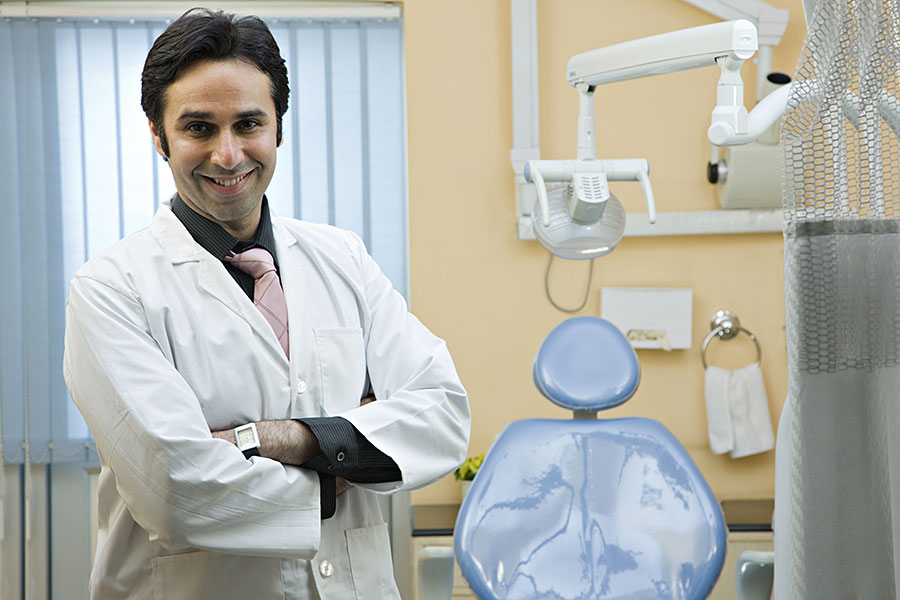Who should you see to get Braces – An Orthodontist or a normal Dentist?
Have you or your child thought about getting braces? If so, you may be debating whether or not an orthodontist is necessary, or whether your regular dentist can perform the necessary work.
Perhaps you’re wondering what an orthodontist can do for you that a regular dentist can’t, but you have no idea what the differences are. We have a team of Specialist dentist in Gurgaon. It’s normal to feel more secure with what you already know and have experienced, but there are many good reasons to go to an orthodontist before committing to a permanent solution like braces if you’re considering a course of corrective treatment.
It’s important to remember that even if dentists and orthodontists share many similarities, you still need to choose one or the other depending on your needs. If you want to know what these variations are and why they matter, you should keep reading!
Education and training levels
Dentists and orthodontists have the common ground of having completed dental school, but their specialisations diverge from there. Only the best and brightest candidates from each graduating class of dental schools are invited to apply to orthodontic residency programmes. To become an orthodontist, one must first complete a four-year dental degree programme and then spend an additional two to three years in full-time orthodontic residency, where they learn to treat patients with braces, correct bite issues, and straighten teeth. Simply speaking, orthodontists are dentists who have received additional, specialised education in orthodontics.
After completing this degree, a dentist can legally call oneself an orthodontist.
Are general Dentists able to straighten teeth?
Yes, they can in a technical sense. Some dentists can help their patients straighten their teeth. However, there are restrictions in place. Dentists are often given this privilege provided they agree to participate in continuing education programmes and gain relevant work experience. The problem with this system is that workshops and seminars rarely provide the kind of rigorous instruction and assessment that is necessary to master complex topics. When it comes to orthodontics, a surface-level understanding isn’t always adequate to deliver the best possible therapy for patients.
Considering a Dentist for Orthodontic Treatment
If your family dentist also provides orthodontic services, you may want to consider having all of your orthodontic work done there. It’s logical that you’d feel at ease in your dentist’s waiting room. While it’s true that all dentists receive some form of orthodontic training in dental school, you should consult with an actual orthodontist before letting just anyone put braces on your teeth as an Orthodontist
- Will be able to offer a wider range of treatment alternatives, including a large selection of braces and therapeutic approaches.
- Will have had greater practice with patients who like you and had similar medical issues to yours and thus would be experts
- Will save time and effort because they only deal with orthodontics and nothing else
- Will have knowledge of the latest technology and advancement in the orthodontics field as this is their focus area.
- Will be able to provide you with the optimal course of treatment and result, especially if your condition is particularly complex or severe.
Should you choose a Dentist or an Orthodontist for braces?
Patients have complete autonomy in selecting the healthcare practitioner they feel will best match their requirements. It’s true that some family dentists have extensive training in orthodontics. However, keep in mind that any orthodontist will be specialised in and have more experience with the treatment of specific oral conditions requiring orthodontic care.
Consider the following: if you suddenly needed open heart surgery, would you go to your family doctor or a cardiologist who specialises in such procedures? While your primary care physician may have some background knowledge in cardiac conditions, a cardiologist will have far more extensive training and expertise in this area. In the case of teeth, this can be similarly true. It would be like sending a general practitioner to undertake open heart surgery. Is it worth the potential downsides to do this?
Conclusion
Orthodontists give due importance on deciding the safest and most effective methods of treatment possible. Dr. Kopal Singhal Jain is one o the best Orthodontist in Gurgaon, Because of their specialised training, orthodontists are in a better position than general dentists to identify potential problems and provide solutions that will save you time, money, and effort. Protect your dental health by going to a specialist.



Comments
Post a Comment